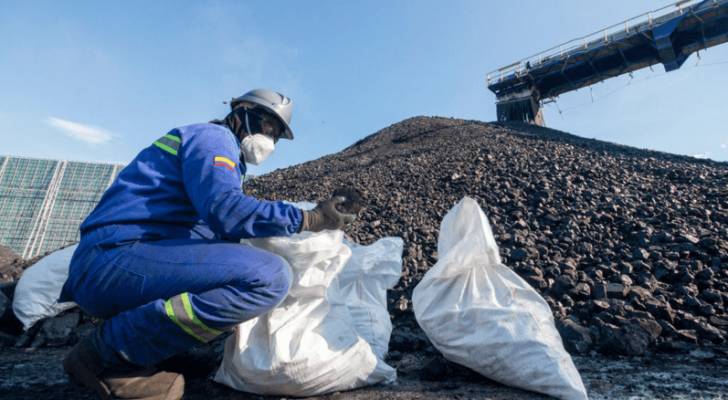Colombian coal.
Colombia coal exports plummet after ban on ‘Israel’ sales
Colombia’s coal exports fell by almost half in July compared to the same period last year, with official figures showing a dramatic 45.8 percent drop in value.
The decline comes days after President Gustavo Petro renewed a ban on sales to ‘Israel’, compounding existing pressures on the country’s leading export sector.
According to the National Administrative Department of Statistics (DANE), Colombia exported $479.8 million worth of coal in July, a steep decrease from the $885.8 million sold in July 2024.
This marks the fifth consecutive quarter of contraction for the sector, which local mining unions attribute to a “global price crisis” and increased production in Indonesia that has driven down international prices.
The latest export figures underscore the impact of President Petro's political stance, which has become a key factor in the industry’s downturn.
In July, Petro issued a second decree to halt coal exports to ‘Israel’, reinforcing an edict first made in June 2024.
The president, who formally severed diplomatic ties with ‘Israel’ in May 2024, has publicly stated that Colombia “will not be complicit” in what he calls a “genocide” in Gaza.
He has asserted that Colombian coal is being used "to make bombs that kill Palestinian children".
‘Israel’ was previously Colombia’s top coal buyer, importing 1.4 million metric tons of thermal coal in 2024, with 60 percent of that volume coming from Colombia. The ban cut off a significant and previously stable market for Colombia.
The decline is also a direct result of Petro’s broader domestic agenda to transition away from fossil fuels.
Since taking office in 2022, his administration has imposed higher taxes on coal and promoted alternative industries like agriculture and tourism.
The shift has raised concerns among the approximately 350,000 people employed in mineral exploration. As one worker, Jorge Noriega from Tausa, expressed, "The government wants to end mining... but they don't think about us".




